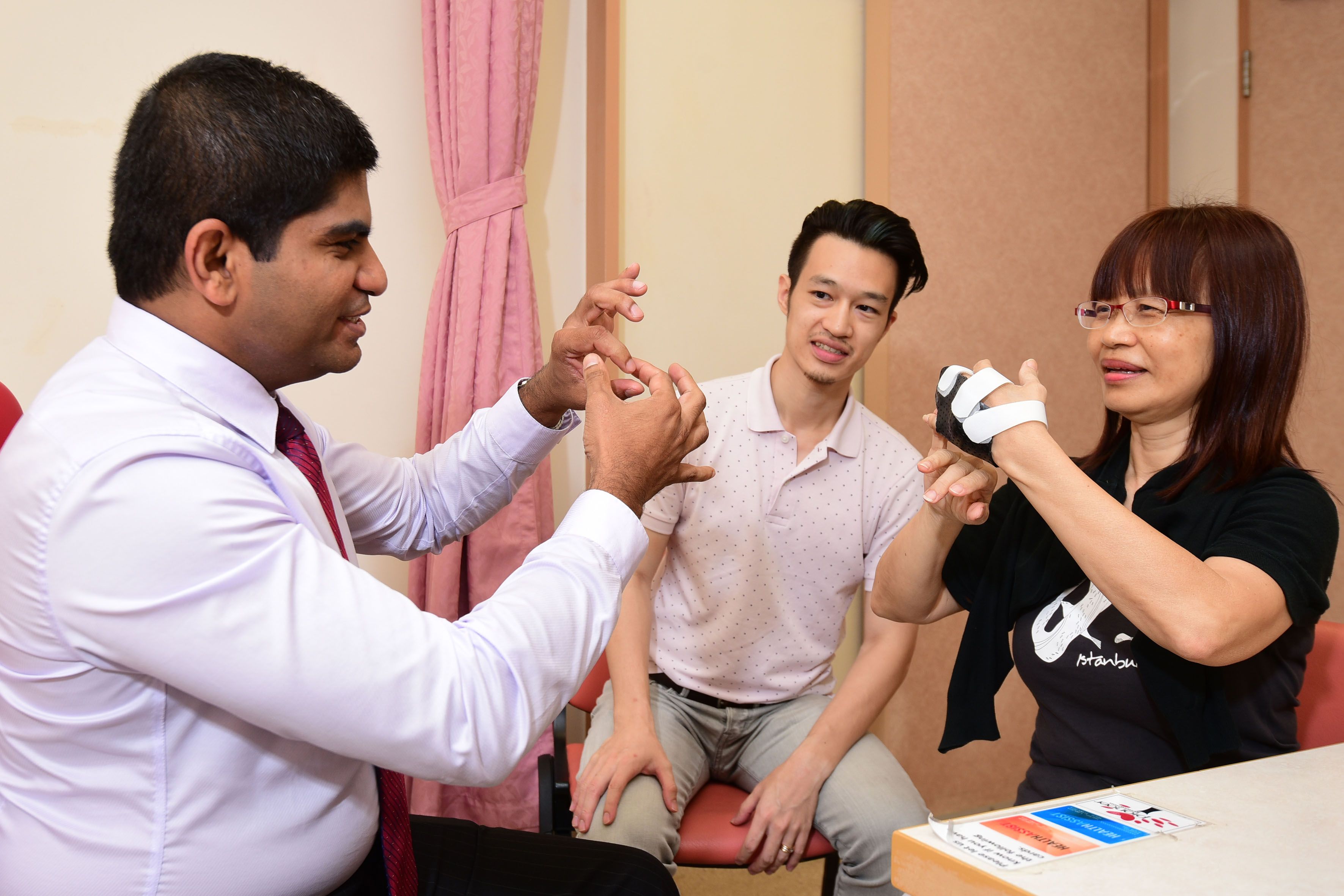'Alarming rise' in younger dementia patients
Number diagnosed last year up 4 times from 2011, says NNI study
Sign up now: Get ST's newsletters delivered to your inbox

Prof Nagaendran (left) with a patient, Ms Low, who began showing symptoms two years ago, says her son, Mr Lim. She is now on medication and an exercise and mental stimulation programme.
PHOTO: DIOS VINCOY JR FOR THE STRAITS TIMES
Follow topic:
Four times as many younger people were diagnosed with dementia last year than in 2011, the National Neuroscience Institute (NNI) revealed yesterday.
It had 27 patients under 65 in 2011 and 121 last year, though the reasons for the "alarming" rise are not yet fully understood, according to Associate Professor Nagaendran Kandiah of the NNI's neurology department.
"If this trend continues, we are in big trouble because we don't have enough services for these patients at the moment," he said.
Prof Nagaendran carried out a study of 250 dementia patients - around a third of whom were under 65 - to find out the financial impact of getting dementia early.
Forthose over 65, he found, the median annual cost was around $11,400. For younger patients, it was nearly double that, at $21,400.
-
Symptoms in younger patients
Dementia symptoms in younger patients are slightly different from those in older ones.
According to Associate Professor Nagaendran Kandiah of the National Neuroscience Institute's neurology department, they include:
• Difficulties with language and a shrinking vocabulary. For example, they may refer to a knife as a fork, mispronounce the word or simply refer to it as "that thing".
• Changes in behaviour, especially a lack of inhibition, which results in their acting inappropriately in social situations. At work, for example, they may be disruptive when they were previously reserved.
• Problems with finding their way around, such as constantly alighting at the wrong MRT station or getting lost in shopping malls.
Prof Nagaendran added that people should see a doctor if:
• Any of the symptoms last more than six months;
• People, such as your family or colleagues, start noticing the differences;
• The problems are starting to affect functions in daily life, such as work meetings.
Linette Lai
Around 40 per cent of the younger patients in his study reported losing their jobs due to dementia, which was a main contributor to the higher cost.
"If you have dementia when you are 75, you have already retired," Prof Nagaendran said. "But if you are 50, you are most likely still working, or even the sole breadwinner."
While dementia typically hits the over-70s, young dementia patients start showing symptoms in their 40s or 50s.
Prof Nagaendran estimates that there are 40,000 people in Singapore with dementia, 10 per cent of whom are under 65.
While dementia in older people tends to show up as forgetfulness, younger dementia patients usually have problems with language.
Their behaviour may also be radically different and could be disruptive, which contributes to their losing their jobs.
Prof Nagaendran said his study shows that more needs to be done to help younger dementia patients and their families cope with the financial and social impact of the disease.
For example, programmes at daycare centres are targeted at older patients. "(Younger patients) go once, and they see that everyone there is over 70, and they don't want to go back," he said.
One of his patients is Ms Jennifer Low, 60, who was diagnosed with dementia six months ago.
However, her son, actor Joshua Lim, said her symptoms started around two years ago.
"She kept forgetting words and repeating the same questions, even when we had just told her the answers," said Mr Lim, 30.
The first doctor they saw dismissed their concerns, saying that Ms Low was too young to have dementia, but her family knew that something was wrong.
Now, she is on medication and attends a programme that provides exercise and mental stimulation.
"Since then, there's been a slowing down of the (mental) degeneration," Mr Lim said.

